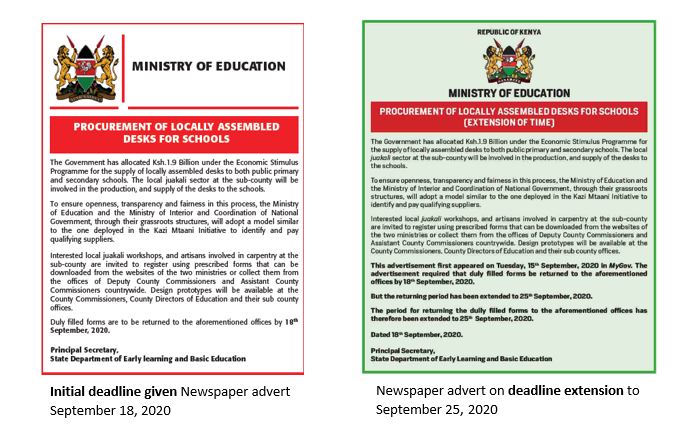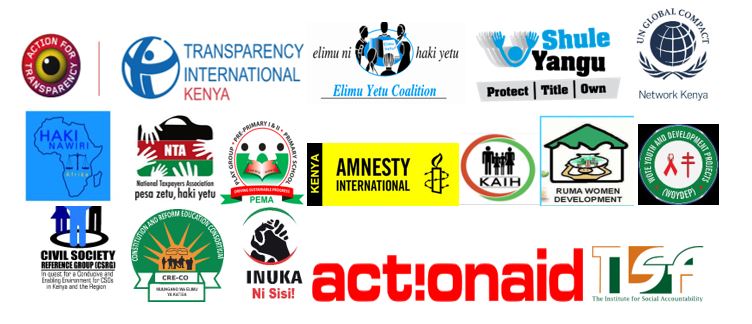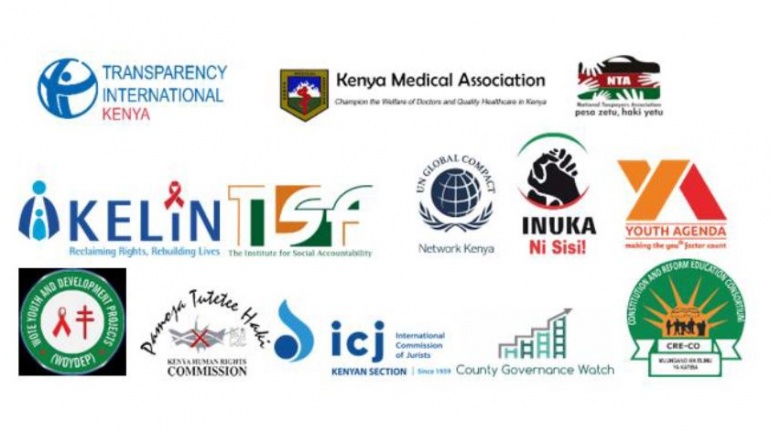25th September 2020
Recognising the risks posed by procurement fraud to the national COVID-19 emergency response, we, representing civil society organisations and networks, wish to bring to your attention concerns on the recently announced Government of Kenya Economic Stimulus Programme for the supply of locally assembled desks to both public primary and secondary schools.
We note and appreciate measures taken by the Government of Kenya to contain the spread and contraction of COVID-19. Safeguarding citizens is part of the Governments’ obligation to save lives and livelihoods. We also recognize the potential power of awarding contracts worth Kshs 1.9 billion to the local jua kali sector to produce school desks under the current Economic Stimulus Programme.
We are however deeply concerned about critical transparency and accountability gaps in the recent advert on procurement of locally assembled desks for schools (see attached) and request your written response to the following:
- A need for clarity on the method to be used in the procurement process as provided for under the procurement laws;
- Between 15th and 17th September the Ministry published adverts for jua kali workshops and artisans to submit duly filled forms initially by 18th September 2020 and then extended to 25th September 2020. The notice given is simply too short for the target audience to allow for open and competitive bidding and raises legitimate concerns whether suppliers have been pre-selected and the advertisement is merely a formality;
- Advise on whether a market survey and technical requirements have been completed to ensure that Kenyans get value for money in this process. We request you to share this with us.
- Advise on whether your identification criteria will incorporate established local government mechanisms for registration of businesses by the County Governments for participation of local jua kali workshops and the artisans involved in carpentry;
- Advise on whether this procurement will be managed in line with Regulation 108 of the Public Procurement and Asset Disposal Regulations 2020 that requires community participation;
- Avail any report of a needs assessment that was conducted with a view of establishing the infrastructural and structural needs beyond provision of desks as part of the plans for planned reopening of schools (for instance bed capacity for boarding schools, spacing/expansion to ensure physical distancing in the class rooms and boarding facilities etc);
- Avail a detailed plan for allocation and distribution of the procured desks to public schools with a clear framework on the existing needs across different schools as well as the available infrastructure in public primary and secondary schools to ensure safe and sustainable use of the procured desks.
To ensure openness, transparency and fairness in this process as intended by the Ministry of Education and the Ministry of Interior and Coordination of National Government, we therefore recommend that the Education Ministry:
- Publish and provide us with detailed procurement information in relation to the method of procurement to be applied, including one that upholds fairness, equity, transparency, cost-effectiveness and fair competition among those submitting their applications;
- Extend the timelines to allow for adequate participation of all interested potential service providers as well as ensure an open and accountable evaluation and identification process;
- Publish a detailed market survey with the technical requirement made public to ensure value for money and that the provision of goods meet the standards required including fit for use by children with special needs;
- Coordinate with County Governments to verify legitimate service providers registered as business owners in County Government records and guarantee integrity in the process of identification of service providers;
- Ensure that where community participation is involved, provisions of regulations 109 and 110 of the public procurement regulations are adhered to including making information available to the public on the procedures for establishing community project management and implementation committees and their roles;
- Publish or avail information on all budgetary and expenditure information including a detailed project budget, allocations, disbursements and beneficiaries per county published at the registration points; and,
- Publish or avail detailed plans for the distribution and utilization of the desks in identified public primary and secondary schools with corresponding infrastructure for safe and sustainable use of the desks.
Our concerns and recommendations will go a long way in shielding the Ministry of Education from the erosion of public confidence and well-meaning public interest litigation arising from inflated prices for goods and services by public servants during the ongoing COVID-19 government response. Only FULL DISCLOSURE and ACCOUNTABILITY of all public funds, aid and donations meant to address the COVID-19 pandemic in Kenya will ensure that public funds being applied will not be diverted to private interests.
Sincerely,
Sheila Masinde,
Executive Director
Transparency International Kenya
Email: smasinde@tikenya.org
On behalf of the listed organizations
- ActionAid Kenya
- Amnesty International Kenya
- Civil Society Reference Group (CSRG)
- Constitution and Reform Education Consortium (CRECO)
- Elimu Yetu Coalition
- Global Compact Network Kenya
- Haki Nawiri Africa
- Inuka Kenya Ni Sisi!
- Kenya Association of the Intellectually Handicapped (KAIH)
- National Taxpayers Association
- PEMA Education Centre
- RUMA Women Development
- Shule Yangu Alliance
- The Institute for Social Accountability (TISA)
- Wote Youth Development Projects




